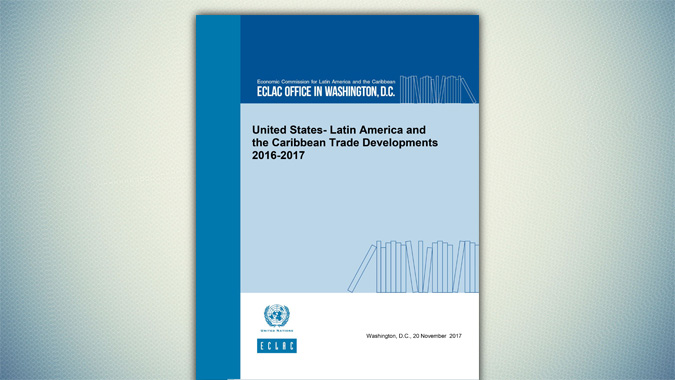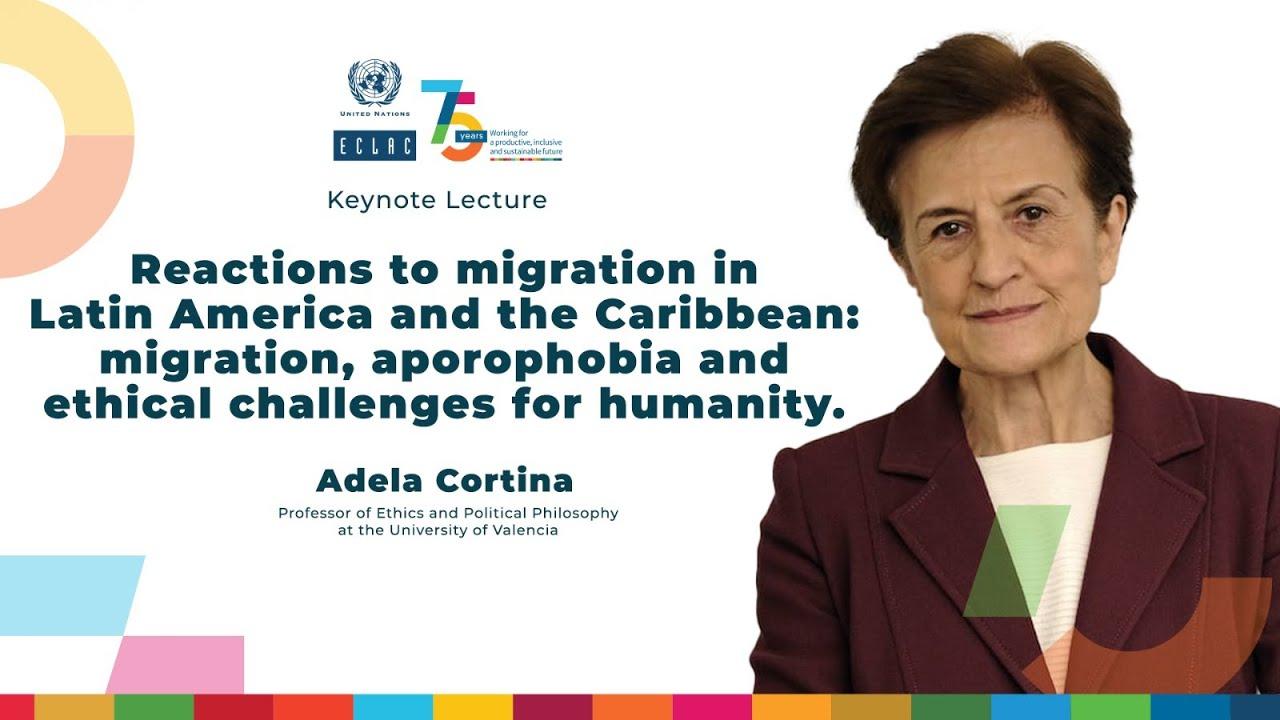video
A recent annual report elaborated by the ECLAC Washington Office provides an overview of the most relevant developments in United States trade relations with Latin America and the Caribbean and of the measures that inhibit the free flow of goods among countries in the Western Hemisphere.
United States- Latin America and the Caribbean Trade Developments 2016-2017 explains that trade features prominently in the new administration’s economic agenda. The President’s Trade Policy Agenda reinforces the focus on the defense of United States interests through the promotion of free and fair trade by identifying four priorities: promoting United States sovereignty, enforcing United States trade laws, leveraging United States economic strength to expand goods and services exports, and protecting United States intellectual property rights.
Specifically, the administration has indicated that multilateral free-trade pacts will be avoided, bilateral trade negotiations will be prioritized, and reducing the United States’ trade deficit will be a central goal of trade policy, according to the ECLAC report.
It adds that a growing range of economic activities are moving online, encompassing various information and communication technologies (ICTs) that are having a transformational impact on the way business is conducted, people interact among themselves and with the government and businesses. United States digital trade related exports are increasing and so is foreign direct investment (FDI) in those industries. This year’s report addresses the significance of digital trade for the U.S. economy as well as some of the existing barriers that may be inhibiting the growth of the digital economy.
Other relevant developments for the region included a multi-year Caribbean strategy developed by the United States Department of State, in coordination with the United States Agency for International Development, to enhance the security and prosperity of the Caribbean region and in turn that of the United States. The goal of the strategy is to encourage private sector-led growth and job creation; energy diversification, regulatory reform, and public-private partnerships in the Caribbean; and maximize partnerships between the United States and the Caribbean in health and education.
With respect to Central America, the report recalls that the United States co-hosted with Mexico the Conference on Prosperity and Security in Central America in June, 2017. This was the first high-level summit between the Central American and the Trump Administration authorities and was intended to set the tone for the relationship for years to come.
Also, President Trump outlined a new policy towards Cuba that partially reversed the Obama Administration’s opening policy. On travel, President Trump ended the directive that allowed for individuals to plan their own trip to Cuba. United States citizens will still be able to travel to Cuba in groups and for educational or professional purposes.
The study addresses the immigration front as well, remembering that in May 2017, the Department of Homeland Security (DHS) granted a six-month extension to 58,000 Haitian immigrants who have been living in the United States under Temporary Protected Status (TPS) since a devastating 2010 earthquake, saying the conditions in their homeland are not stable enough to force them to return.
On the contrary, in October DHS decided to end TPS for about 5,300 Nicaraguans who were given temporary refuge after Hurricane Mitch in 1998 along with nationals from Honduras and El Salvador. Moreover, TPS for El Salvador expired in January 2018 afecting about 200,000 Salvadorans.



